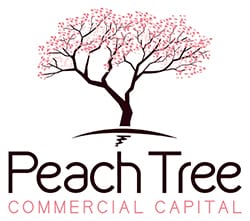In case you haven’t heard, the Federal Reserve raised the national interest rates this past month. This might seem like the end of the world, but we’re here to assure you, it’s not. The fed routinely raises or lowers interest rates depending on the health of the economy. However, it is important to understand what that means for your loans and your repayment plans.
What is the interest rate?
Even banks need a loan every once in a while. The interest rate is the rate the federal reserve, America’s national bank, charges for banks to lend to one another. This helps set the interest rates for all banks operating in the united states. The rates are generally raised when the economy is doing well, to pump the breaks on growth and to balance inflation with the employment rate – when unemployment is low and the economy strong, the rate is raised to check wild and risky investments, excessive borrowing and spending, but when the economy is sluggish, with unemployment and inflation on the rise, the rate is cut to stimulate borrowing, production, spending, and hiring.
While interest rates are not immediately passed down to small borrowers the baseline interest rates will eventually cause rates for mortgages, credit cards, and small business loans to rise. Most bank loans will see an increase in their interest rates, which can have a direct impact on how a borrower applies for and utilizes a bank loan.
What does this mean for my business loan?
This isn’t an easy question to answer. It depends on what type of loan you are applying for, and who you are applying with. If your loan is at a set rate then your rates will remain the same, unless the terms allow it to change based on new variables. You will need to talk to your broker and lender to understand exactly what the new interest rates mean for your loans.
If you do not have a loan yet or are looking to refinance an existing loan, then the rates you were looking at from certain lenders may be obsolete. In the case of loan refinancing, it can have a direct impact on how long it takes to pay off the new loan. If your loan is a variable rate it is also smart to talk your broker about refinancing to a fixed rate loan.
What’s important to remember is that the interest you pay on new loans is going to go up. This is a trend which has been on the rise for the last few years and is likely to repeat before 2019. Banks need to repay their own interest, as well.
What should I do
The first thing to do is to talk to your broker or lender. Get any essential information from them. If they think this may impact your loan they can help you figure out solutions.
Also, update your business plan. If your rate does go up it can have an immediate impact on your business’s finances and on the repayment of the loan. This means that any current plans can be negatively affected, and need to be revisited.
Most importantly, remember to not panic. The interest rate has been low for several years, a rising interest rate is a sign of a healthy economy. This isn’t the end of the world. If it does affect you there are solutions that can help.
A change in interest rates can be confusing. A broker can help you understand what the interest means for your loan, and how it will affect you. Talk to your broker about potential concerns, and look to switch over to a variable interest loan to help mitigate potential concerns. Our brokers can help you find the solution that is right for you.

